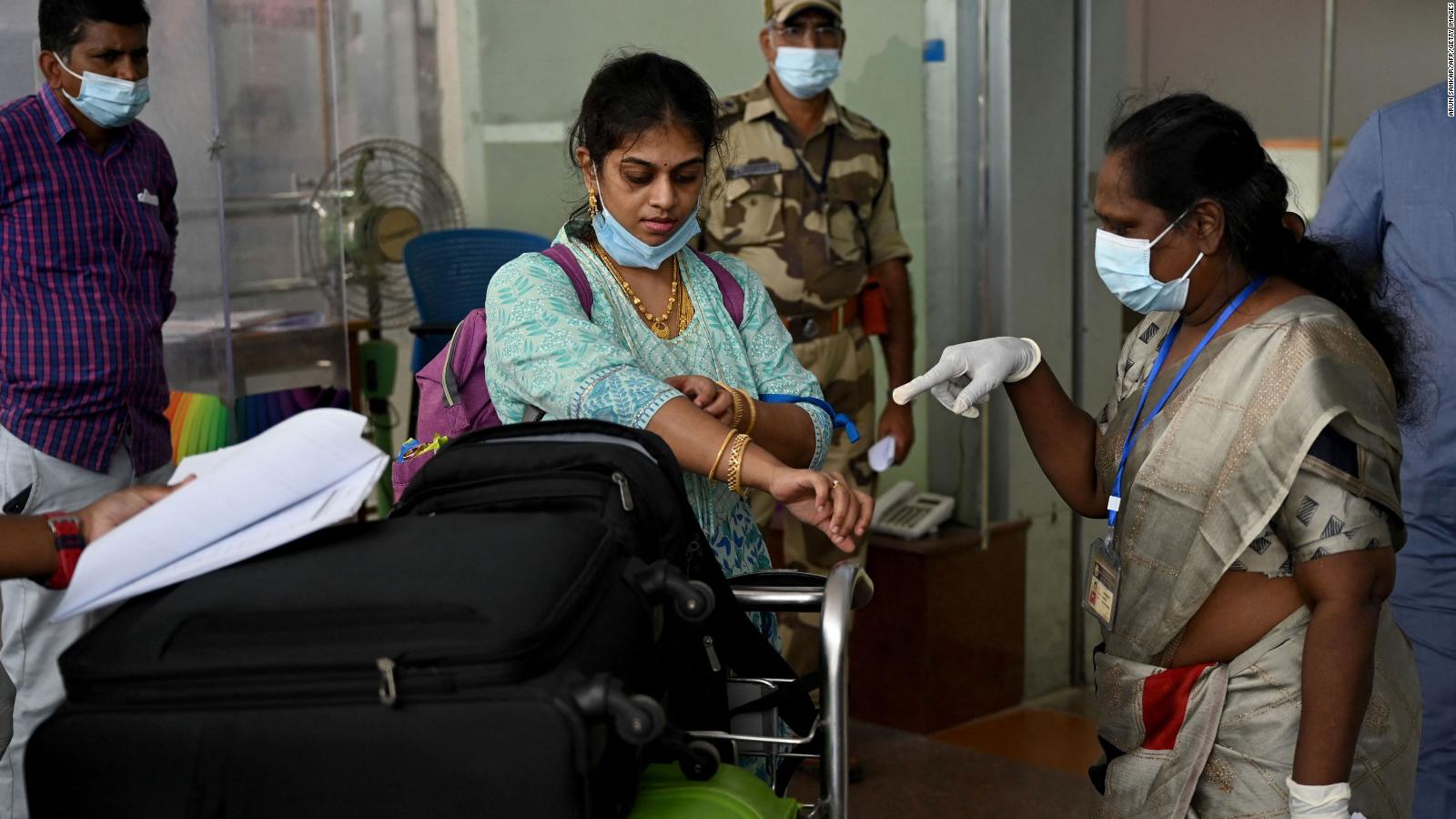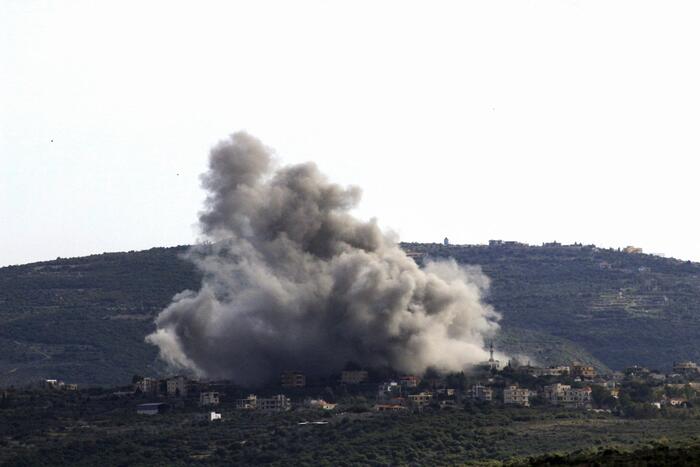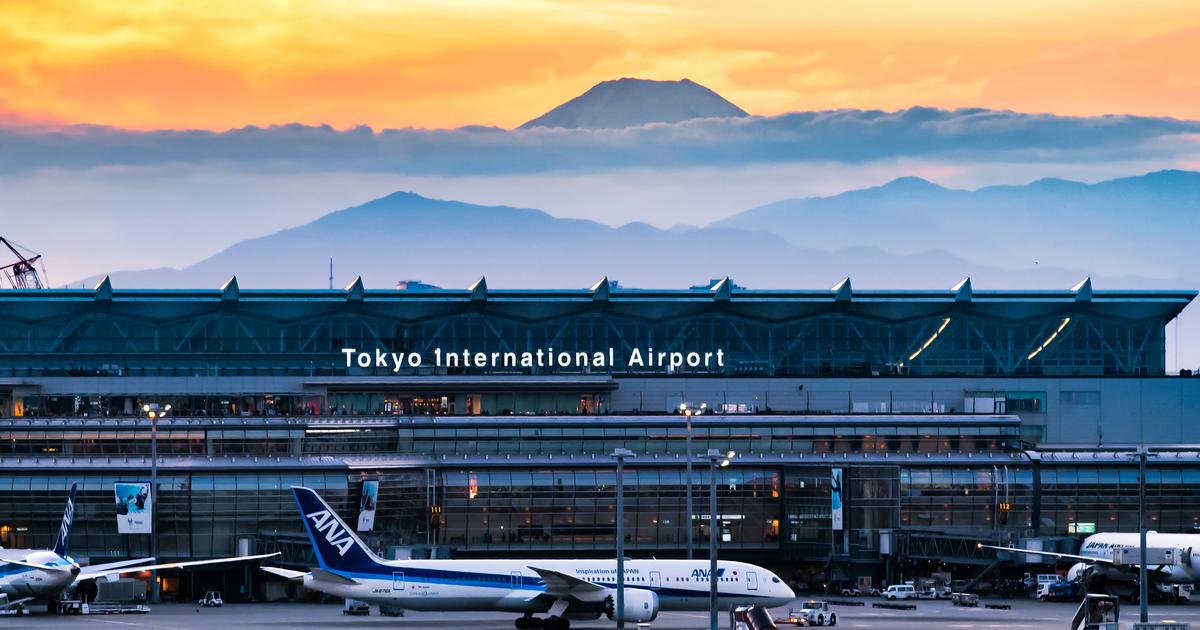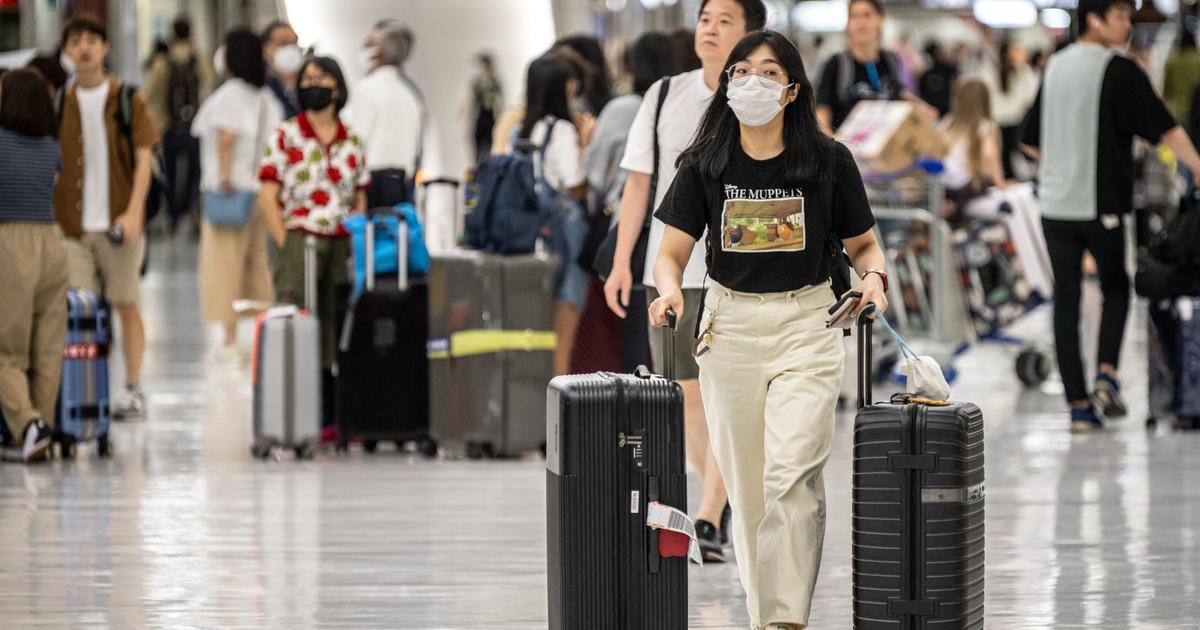How is monkeypox spread?
6:12
(CNN) --
Countries in Asia are on high alert for monkeypox, screening travelers and deploying medical teams, as they report their first cases of the virus, now identified as a global health emergency by the World Organization. of Health (WHO).
Japanese authorities on Monday announced the country's first detected case of monkeypox: a Tokyo resident in his 30s who had returned from Europe in mid-July.
The man had developed fatigue followed by a fever, rash and headache, Health Ministry officials told reporters.
He is currently receiving treatment at the hospital and was "in stable condition," authorities added, declining to disclose further details about the patient, including his nationality.
Initial symptoms of monkeypox infection include fever, headache, swollen lymph nodes, back pain, muscle aches and lack of energy, according to the WHO.
The disease then progresses to a rash and lesions that can blister and crust over the entire body, usually lasting two to four weeks.
There are already antiviral treatments and vaccines for what is also known as monkeypox, including those used in the eradication of smallpox, according to the WHO.
Japan's first identified case comes after its foreign ministry this week urged travelers to exercise caution regarding the disease.
Officials said clinical studies on the treatment and preventive measures have been launched, and vaccinations have been administered to frontline medical workers in Tokyo.
advertising
What is the difference between monkeypox and normal smallpox?
Are they just as deadly?
The number of cases in Asia remains low, but experts say the region could see a "likely increase" in the coming weeks.
"Like covid-19, travel and border restrictions didn't actually stop the spread of monkeypox, they just slowed it down. The disease will (continue) to spread globally," said Khoo Yoong Khean, a scientist at the Center Duke-NUS for Outbreak Preparedness in Singapore.
"Cases in the US and Europe have been increasing rapidly due to travel, trade and tourism. We are likely to see more cases of monkeypox in Asia in the coming weeks or months."
According to Khoo, it is only a matter of time before more countries in Asia identify monkeypox cases.
"The real issue for countries in Asia now is whether surveillance and early detection systems and processes are robust enough to handle positive cases when they occur," he said.
But he warned against border restrictions.
"While (somewhat) useful as a stopgap measure, it's not sustainable and it's something that not many countries can bear again after their experiences with the Covid-19 pandemic," he said.
'We must stay vigilant'
More than 19,000 cases of monkeypox have been reported in at least 76 territories worldwide, the vast majority in places where the virus is not endemic, according to the US Centers for Disease Control and Prevention ( CDC).
About a dozen of these new locations are in Asia and the Pacific.
Thailand last week reported its first case in a 27-year-old foreign national on the resort island of Phuket.
The Southeast Asian country issued health alerts and stepped up checks at border checkpoints after the patient fled to neighboring Cambodia following news of his positive test result.
He was later arrested in the Cambodian capital, Phnom Penh.
Thai hospitals have also been told to scan potential patients for monkeypox and immediately submit to laboratory tests, Health Minister Anutin Charnvirakul told reporters on Monday.
Monkeypox vs.
covid-19: how the two health emergencies compare
Elsewhere in Asia, countries such as Singapore and India have reported new cases.
The Singapore Ministry of Health has confirmed 10 cases in total, including locally transmitted infections and patients who had recently traveled from Canada, the UK and Germany.
India is also on high alert after confirming its fourth case of monkeypox in the capital Delhi on Monday.
A 34-year-old man was admitted to hospital with a rash and fever that had lasted for two weeks.
The first three cases were detected in the southern state of Kerala in travelers who had arrived from the United Arab Emirates.
Since then, checks at airports have been stepped up and a high-level medical team has been deployed to Kerala to assist state health authorities with medical investigation, Indian authorities said.
In a statement on Tuesday, WHO regional director Poonam K. Singh said the risk of a monkeypox outbreak in Southeast Asia was "moderate, but the potential for further international spread is real."
Anyone can get monkeypox, but a "remarkable fraction" of cases in the global outbreak are among gay and bisexual men, according to the CDC.
That doesn't mean the virus is sexually transmitted, but officials say it shows that prolonged skin-to-skin contact is one of the main ways monkeypox is now spreading.
"We must remain vigilant and be prepared to mount an intense response to reduce the spread of monkeypox," said the WHO's Singh.
"Our efforts and measures must be sensitive and free from stigma and discrimination."
monkey pox



/cloudfront-eu-central-1.images.arcpublishing.com/prisa/LXJQLIHEEJDHBNVN45ZLQLAMJY.jpg)





